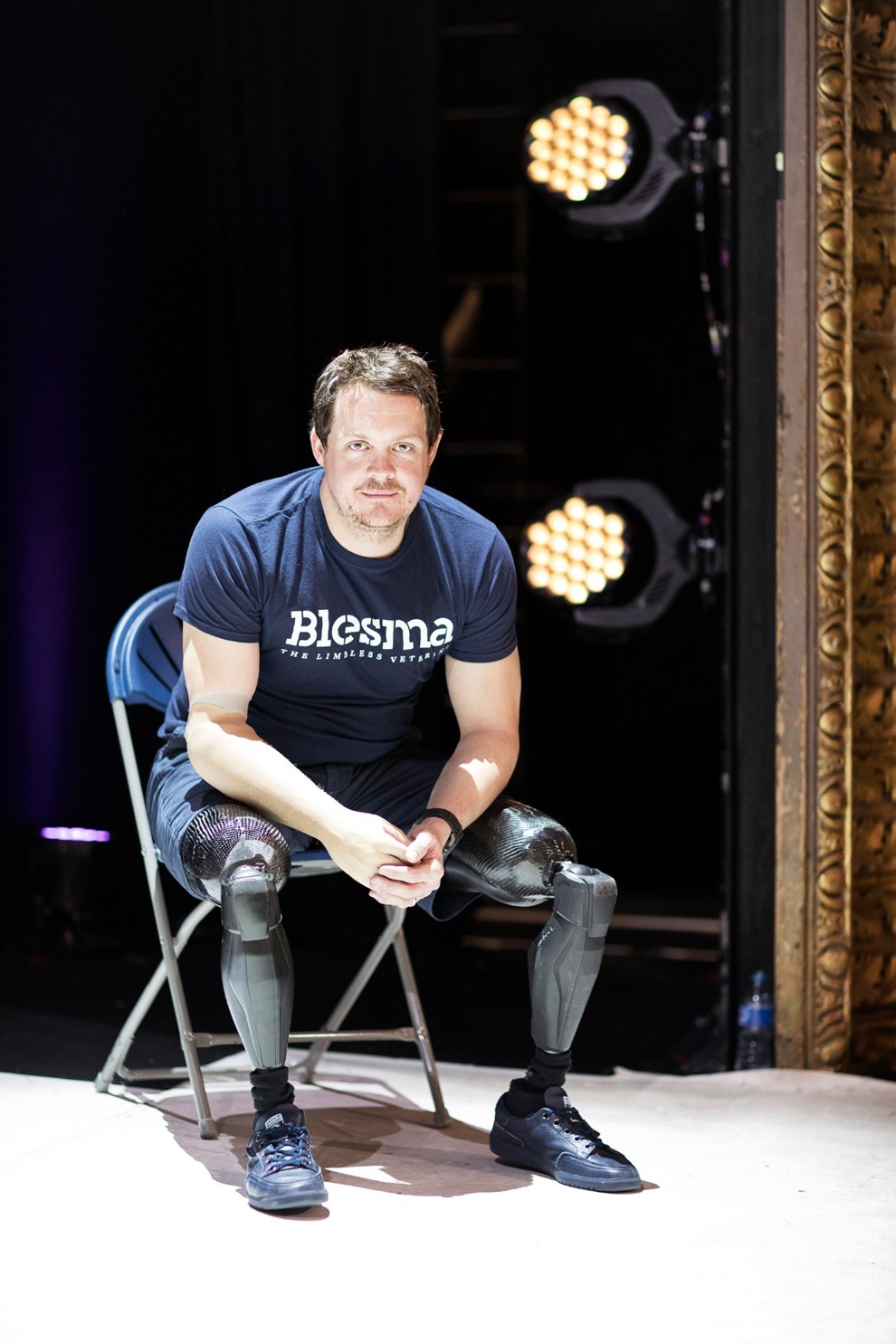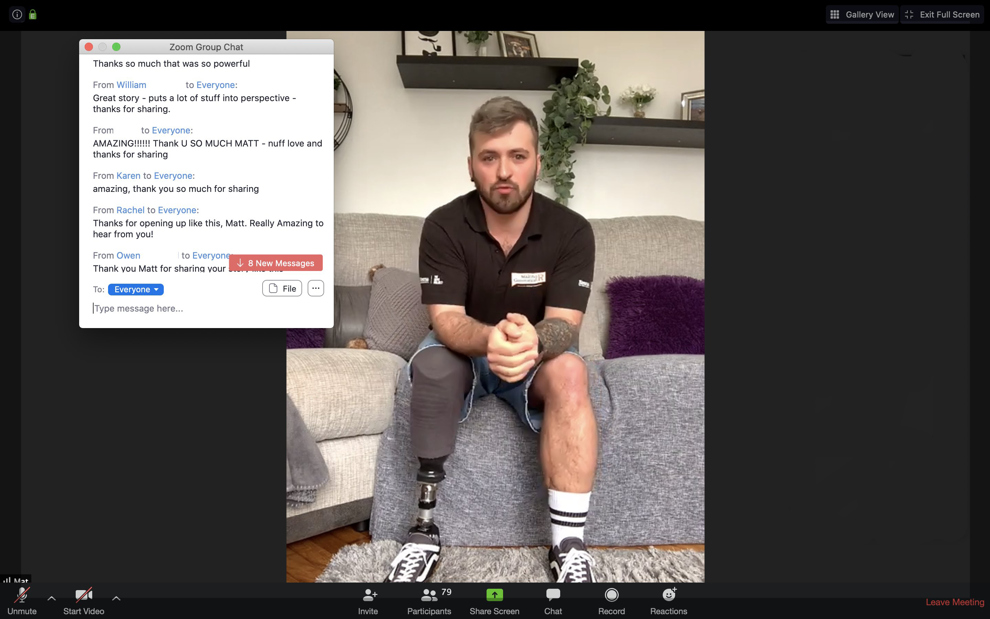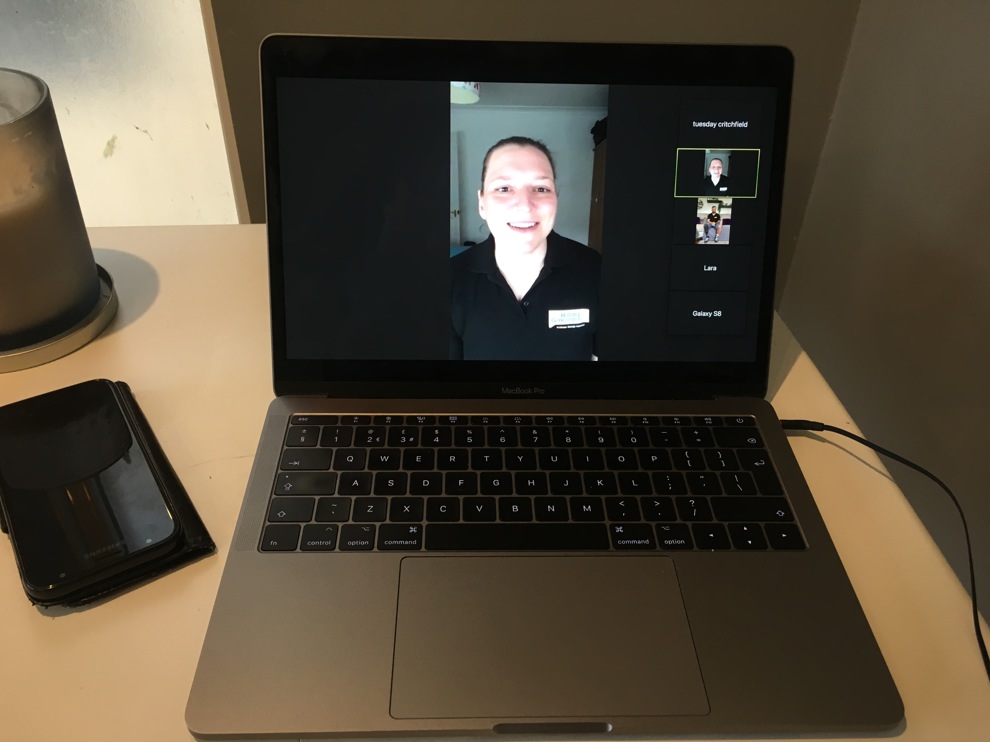Making Generation R is there for schools online during Lockdown
The hugely successful Making Generation R programme has shown its own resilience with a new online resource that has been created to help teenagers cope with the pressures of lockdown.
Members may not be able to go into schools in person to tell their inspirational stories about overcoming adversity, but their voices are still being heard at what is a critical time for the wellbeing of young people. That’s because a team of 30 Members have produced film versions of their talks – each one designed to help viewers build resilience – that can be used by teachers in discussion with online groups or via a school’s own technology platform.
“Before the coronavirus pandemic hit, Making Generation R (MGR) had delivered face-to-face sessions to more than 70,000 people,” says Blesma’s Operations Director, Ian Waller.
“We wanted to continue with the programme through the COVID-19 lockdown and keep our Members engaged, so we have produced digital versions of the Members’ stories as well as a digital resource pack that allow us to continue to run the resilience workshops at a time when the schools are shut.”
“Being a teenager is difficult at any time, but particularly when they are not able to be in school or see their teachers and friends, when their education has been reduced, and when they are probably very anxious about their future. These are anxious times for us all and the messages around resilience – which form a key part of MGR – have never been so appropriate.”
The resource is having a powerful impact, with many teachers having rated it as an ‘excellent’ wellbeing resource, whilst one student who took part in an online session left a comment stating: “I feel that I will be able to recover from the pain I am going through during lockdown.”

Switching from delivering engaging and effective face-to-face sessions for an attentive audience in a school workshop is, however, vastly different from relating a story directly to a camera that has been set up in the Member’s home. It presents personal and logistical challenges but The Drive Project, a social enterprise that has been working with Blesma to deliver MGR over the last four years, has provided extra training sessions to smooth the transition.
“Not all our Members are experts at filming, so we made sure those involved worked with an experienced film producer to ensure the best possible film quality,” says Ian. “The results are very professional and, although you can never replicate the live experience, this is the next best thing.”
The Members’ stories are introduced by veterans Mat Armitage and Luke Delahunty, who help to set the scene and encourage discussion and exercises to synchronise with the lesson plans devised by schools. The films feature clips of the Members using their coping strategies in everyday life to underscore their importance. Finally, pupils are encouraged to leave messages and feedback, which allow them to connect with Members who are dealing with their own experiences of lockdown.
“Our Members’ stories are still incredibly powerful and can have such a big impact on an age group that has had a lot to contend with during lockdown. Teenagers have not been able to see their friends or go to school, and it is easy to feel dislocated and distressed. Our Members’ experiences and coping strategies can provide vital support during this time.”
“Each Member had three training sessions with a facilitator to understand technical aspects of film making such as getting the lighting right in their home and the various ways of recording,” says Grace Staniland, managing director of The Drive Project.
“Speaking to a camera in your front room rather than to a live audience is very different and once you have finished talking you are left with silence – there is no feedback or reaction – which can be challenging. The delivery has to be different, too. Storytelling techniques that the Members have learned need to be tweaked because dramatic pauses can be held for a lot longer in real life, whilst comic timing is affected because there is no laughter at the points you have built for.”
Josh Boggi is one Member who had delivered a number of successful live MGR sessions before lockdown and who has adapted his story for the online resource. “It took a bit of getting used to but I’m really pleased with the result and it is great that MGR is still getting into schools,” says the 33-year-old former Royal Engineer who stepped on an IED in Afghanistan on New Year’s Eve 2010, two months into his third tour of duty. He lost both his legs and had to have part of his right arm amputated. At the age of just 23, Josh initially faced a battle for survival before having to work hard to rebuild his life.

“When lockdown was announced I had just arranged to do more talks in schools so I was gutted about that, but this is a great alternative,” he says. “The current situation must be really tough for a lot of teenagers – some would have been taking their exams now, so there is a lot of uncertainty. A lot of Blesma Members have been to hell and back before managing to put their lives back together. We have found that our stories can help pupils build their resilience. They need help now more than ever, and although we can’t physically get into schools, we hope our videos help. It’s just 20 minutes of our time but if it helps students deal with the pressures of this strange existence then it will have been well worthwhile.” says Josh, who is married with a nine-year-old son.
“It’s good that students are going to have access to this resource through what is proving to be a tough period. The main point I make is that if you need help, ask for it. Talk to your friends or your teachers. Our stories show that no matter what happens in life, you always get another choice. As long as you are resilient and you have the willpower, you can change your life. As Members we get a lot from these sessions and from connecting with teenagers because we see it as something positive coming out of a dark moment. It demonstrates that you can overcome adversities with resilience.”
The online resource has already been delivered to more than 28,000 young people aged from 11 to 18, and is also being offered to first responders to help them process the trauma of being on the front line when it comes to treating coronavirus.

“Making Generation R originally came from Members who wanted to give back. They were always being asked how they were injured, so we invested in teaching them to tell their stories with impact so that other people could benefit,” says Ian.
“Our Members get a lot from being able to give back to society – it promotes self-esteem and the confidence to achieve. The Blesma approach is about leading independent and fulfilling lives, and our Members have approached this challenge in the same way they approach everything. There is a little bit of difficulty to overcome because we can’t go into schools, but they have adjusted and are all keen to continue helping others. Our Members are empowered by using their personal stories of how they overcame life-changing injuries and dark days. It helps with their recovery and feelings of value to society as well as helping young people cope with a range of stresses.”
Learn more about Making Generation R, and how to book online resilience resource here.
Leave a comment
Join fellow Members and supporters to exchange information, advice and tips. Before commenting please read our terms of use for commenting on articles.